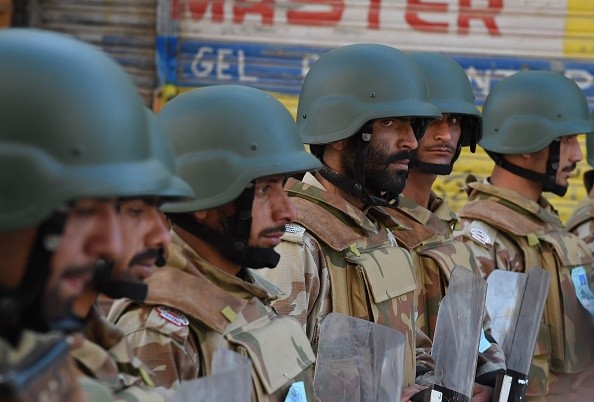
It is hard to analyze Pakistan’s nuclear policy because unlike India, Pakistan does not have a declared doctrine. Experts – for example, Michael Krepon in “Pakistan’s Nuclear Strategy and Deterrence Stability in South Asia”, and Feroz Khan in “Prospects for Indian and Pakistani Arms Control” –have suggested that Pakistan’s doctrine is based on ambiguity.
Pakistan has a simple national security policy: to avoid both conventional as well as nuclear war with India. If war cannot be avoided, then Pakistan’s policy is to limit and win any war. As Mark Fitzpatrick pointed out in his book, “Overcoming Pakistan’s Nuclear Dangers,” Pakistan’s nuclear policy is India-specific, and its arsenal is meant to maintain a full spectrum minimum credible deterrent; Pakistan’s nuclear bomb is not to be used.
To make it even simpler, Pakistan’s national security policy stems from the need for security. The goal of Pakistan’s policy is to maintain the status quo, ensure territorial integrity, and avoid and manage conflicts. Pakistan was compelled to build a nuclear weapon.
Although the policy is simple, the demands are high. From its previous experience in 1948, 1965, 1971, and the 1986 Operation Brasstacks, Pakistan knew it could not rely on the United States to maintain balance with India. This knowledge, along with India’s larger size and – at least perceived – conventional superiority, encouraged Pakistan to develop and test the nuclear bomb. There have been no full-fledged wars between India and Pakistan since Pakistan proved the credibility of its nuclear capability in 1998. This speaks volumes for the effectiveness of Pakistan’s national security policy.
The first conflict we saw following the 1998 nuclear explosion was the Kargil War. During the Kargil conflict, Pakistani troops successfully gained control of vacated posts across the Line of Control in Indian-occupied Kashmir. The fighting was strictly restricted to the area of Kargil, and did not turn into a full-scale war.
This experience repeated itself after members of the terrorist organization Lashkar-e-Taiba, and Jaish-e-Muhammad attacked the Indian parliament on December 13th, 2001. The same terrorist groups attacked the families of Indian soldiers in May 2002 in the Kaluchak district of Jammu. India responded by placing a massive concentration of troops on the Pakistan border, which lasted for eleven months. It was Pakistan’s nuclear capability that deterred India from escalating the crisis.
The most recent example of the efficacy of nuclear deterrence came after the horrific 2008 Mumbai attacks. The Indian government pointed the finger at Pakistan, but did not threaten Pakistan because of their nuclear weapons.
Although technically all three of the post-1998 conflicts were initiated by non-state actors, India held Pakistan responsible for each conflict. As per Pakistan’s national security policy though, the threat of nuclear weapons played a major role, raising the stakes of any war and thereby limiting the conflict between the two nuclear-armed states.
Continuing with their policy, and to address the growing conventional asymmetry, Pakistan has developed a miniaturized, battlefield ready nuclear weapon and a mid-range ballistic missile because they are cost-effective solutions to deter India and ensure stability.
The shortcoming of Pakistan’s current policy is that it is solely focused on maintaining the status quo vis-a-vis India. Part of the policy should be to shift the conversation from security to diplomacy, economy, and politics.
It is essential for the future of both India and Pakistan that they improve their diplomatic and trade relationships. Pakistan and India are both nuclear states. Pakistan’s Nasr has successfully neutralized the threat of India’s conventional forces, and the Shaheen-III has demonstrated that Pakistan has the ability to reach India’s Eastern front. Ultimately, full-scale war is highly unlikely between the two countries, but to ensure that there are no continuing tensions or conflicts, both countries have to resolve their outstanding disputes. This will help India achieve its goal of becoming a regional power, and will alleviate Pakistan’s security concerns with regard to India.
The writer is an assistant professor at the National University of Sciences and Technology (NUST.edu.pk), Islamabad, Pakistan. He tweets @umarwrites.
***
Image: Banaras Khan-AFP, Getty